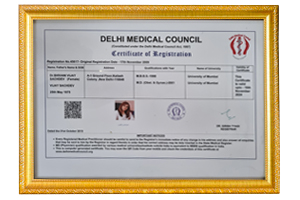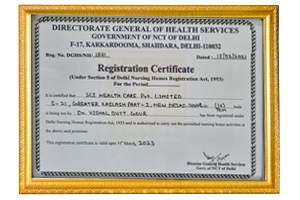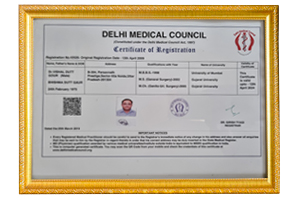Intrauterine Insemination Treatment Centre Delhi. The dream of becoming a parent is certainly a very special one. Every year, for one reason or the other, millions of parents face difficulties in realizing this dream. Assisted reproductive methods have really emerged as a boon for such couples. One of the most common and safest procedures among them is intrauterine insemination at the best Intrauterine Insemination Centre Delhi | Noida.
Intrauterine Insemination is a type of artificial insemination process and a subset of assisted-reproductive techniques. In it, the sperm are collected beforehand and inserted into the uterus of the woman, near the egg. Intrauterine Insemination involves ‘washing’ of the sperm, where the best quality sperm are extracted from the collected sample for the procedure. Since it is assisted, it removes the general distance a sperm has to travel under normal insemination, and thus improve the chances of fertilization.
Intrauterine Insemination is usually considered the first line of reproductive solution for couples who are having trouble getting pregnant from normal intercourse.
Due to its simplicity and low risks, Intrauterine Insemination is suggested in many scenarios:
The preparation begins with the ovulation of the woman. In some cases, normal ovulation cycle of the woman is followed without any external medication. However, it is usually considered more efficient to stimulate ovulation in the woman with the help of medications. In either case, the ovulation cycle is tracked by the doctor using LH kits or transvaginal ultrasound tests. Sometimes, medications like HCG could be injected to stimulate the release of more than one eggs.
The release of eggs is the trigger point. The sperm is collected from the male partner for further processing. If the male’s sperm are not good quality or viable, donor or frozen sperm could also be used. The sperm then undergo a process known as “washing”. Here, the poor-quality sperm (bad morphology, bad motility etc.) and dead cells are removed, leaving behind a concentrated quantity of good-quality sperm. It is generally better to have a few high-quality sperm than many poor-quality ones. Around 24-36 hours after the ovulation is detected, the Intrauterine Insemination procedure begins at Intrauterine Insemination Treatment Centre Delhi/Noida.
On the day of the operation, the female is laid down on the table and stirrups are used on the legs to avoid any movement. A speculum might be inserted into the vagina to form a better passageway. Then, a long and thin catheter is inserted into the vagina through the cervical opening. On one end of the catheter, a vial containing the washed sperm is attached. Once the catheter reaches its proper position into the uterus, the vial pushes the sperm through the catheter and into the uterus. The catheter (and speculum) is then removed from the vagina.
Overall, the procedure takes only a few minutes to finish and is completely non-surgical. The procedure is generally painless and straightforward, though sometimes a patient might experience pain during the insertion. In such cases, specialized catheters are used which makes the insemination process easier at Intrauterine Insemination Treatment Centre Delhi/Noida
Like all assisted reproductive techniques, there are always some risks. However, the probability of these risks is generally very small:
Furthermore, Intrauterine Insemination is not recommended and/or wouldn’t be effective in following cases:
The success rate of Intrauterine Insemination depends on many factors, most of which depend upon the couple. In the case of a young woman (less than 35years of age) and high-quality semen, the success rate is the highest. Based on the existing data, the success rate of Intrauterine Insemination caps at 15-20 percent per cycle. However, it must be noted that the success rate improves with the attempts and multiple cycles of Intrauterine Insemination is usually the norm. In fact, RCOG (Royal College of Obstetricians and Gynaecologists, a UK-based prestigious authority in the field) recommends around six cycles to get the best results out of intrauterine insemination. There is no upper limit on the number of cycles a couple can undergo. If the desired results are not achieved in 3-6 cycles, the doctor will update the couple on the probable chances of future success, and the couple would then decide if they want to continue or move to a different treatment at Intrauterine Insemination Treatment Centre Delhi/Noida.
After the procedure is done, you might be asked to continue laying on the bed for some time. After that, you would be discharged and free to go home. The only thing that remains to do is wait for the results. Many couples, in their excitement to know the results, test too soon after the procedure. This could produce a false-positive (showing you are not pregnant when you actually are) or a false-negative result (indicating pregnancy when you aren’t pregnant).
After two weeks, you would have to go back to the doctor to get yourself checked. If you are pregnant, the procedure is considered successful. If not, the couple and the doctor will decide the future prospects. Failure in the first cycle is considered quite normal; your doctor would likely suggest you to opt for another cycle. Usually, repeated attempts over 3-6 months tend to give a positive result eventually.
Overall, intrauterine insemination is one of the safest and most efficient ways to tackle early fertility issues and realize the dream of becoming pregnant Consult today at Intrauterine Insemination Treatment Centre Delhi/Noida.



















